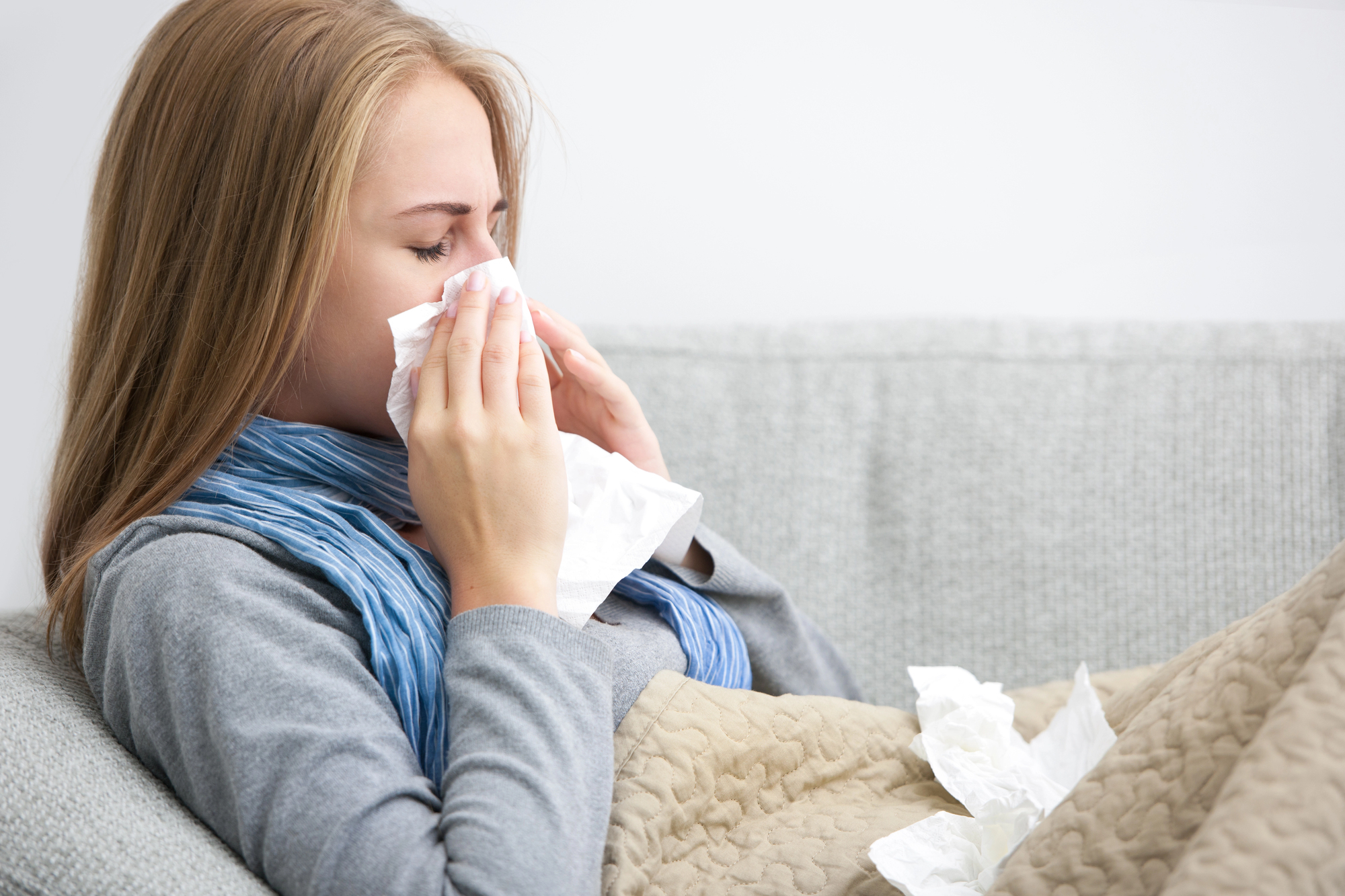Oral Health Tips for Cold and Flu Season
Nov 17, 2025

Key Takeaways
As the weather cools and the days grow shorter, cold and flu season begins to make its yearly appearance. At Eagle Harbor Dental, we know this time of year can be tough on both your body and your smile. When you’re fighting a fever, congestion, or a sore throat, oral health may not be top of mind—but it plays an important role in recovery. Illness affects your mouth just as much as the rest of your body, and taking small, mindful steps can help you heal faster and keep your smile strong.
How Illness Affects Your Mouth
When you’re sick, your body diverts energy toward fighting infection, which can temporarily weaken your immune system—including your mouth’s natural defenses. Saliva flow often decreases, leading to dryness, bad breath, and a higher risk of plaque buildup.
Congestion makes things trickier. Mouth breathing dries out oral tissues, while sugary cough drops and syrups can feed bacteria. Together, these factors create the perfect environment for decay.
Tip: Choose Sugar-Free Soothers
Opt for sugar-free throat lozenges or cough drops to comfort your throat without increasing cavity risk.
Hydrate for Oral and Overall Health
Hydration is key when you’re under the weather. Water keeps your body balanced and supports healthy saliva production—the first line of defense against tooth decay.
When your throat is sore, warm herbal teas can be soothing. Just skip added sugar, and if you use honey, rinse with water afterward to protect your enamel.
Tip: Fluoridated Water Helps
Drinking fluoridated water helps strengthen enamel and wash away bacteria naturally.
Prioritize Your Oral Health This Season
Ready to get back on track with your smile? Schedule a preventive checkup or cleaning with our friendly team.
Choose Sugar-Free Relief Options
Cold and flu symptoms often bring coughs, sore throats, and congestion—and with them, a lot of sugary syrups and drops. These products can cling to teeth and create a breeding ground for bacteria.
Look for sugar-free or xylitol-sweetened alternatives instead. Xylitol doesn’t feed bacteria and can even help stimulate saliva.
Keep Up With Brushing and Flossing
When you’re not feeling your best, brushing can feel like a chore—but maintaining your routine is crucial. Dry mouth and sugary medications make plaque form faster. Brush twice daily with fluoride toothpaste, floss once a day, and be gentle on sensitive gums.
Once you’ve recovered, replace your toothbrush or brush head to start fresh. Even though reinfection from your own brush is unlikely, a new one ensures optimal hygiene.
For a quick refresher on how cavities form and why consistent care matters, check out our post on what a cavity actually is.
Protect Enamel From Stomach Acid
If your illness causes vomiting or reflux, your teeth face another challenge: acid exposure. Stomach acid can soften enamel, leaving teeth more vulnerable to wear and sensitivity.
After vomiting, resist the urge to brush right away. Instead, rinse with water or a mild baking soda solution (½ teaspoon baking soda in half a glass of water) to neutralize acid. Wait about 30 minutes before brushing to avoid micro-abrasions on softened enamel.
If sensitivity lingers, ask your dentist about fluoride or remineralizing products to strengthen enamel and protect against future acid damage.
Manage Dry Mouth Symptoms
Cold and flu medications like decongestants or antihistamines can reduce saliva flow, leading to dry mouth (xerostomia). Without enough saliva, bacteria and acids can build up, increasing your risk for cavities and irritation.
Tip: Saliva Matters
A balanced mouth stays healthier—saliva protects enamel, keeps breath fresh, and helps your mouth recover faster.
Nutrition and Recovery
Comfort foods like pudding, soda, or crackers may be easy when you’re sick, but many are high in sugar and starch that can cling to teeth. Choosing nutrient-rich foods supports both your immune system and your smile.
If your child or teen recently recovered from illness, you may also find our back-to-school dental checklist for parents helpful for maintaining healthy family routines year-round.
Stay Healthy and Keep Smiling
Cold and flu season doesn’t have to take a toll on your smile. With good hydration, sugar-free choices, and steady brushing habits, you can keep your mouth healthy while your body heals.
At Eagle Harbor Dental, we’re here to support your oral health through every season with compassionate care and preventive treatments that make a lasting difference.
Schedule Your Post-Illness Checkup
Feeling better and ready for a checkup? We’re here to help you feel comfortable and confident about your oral health.
For informational purposes only.










